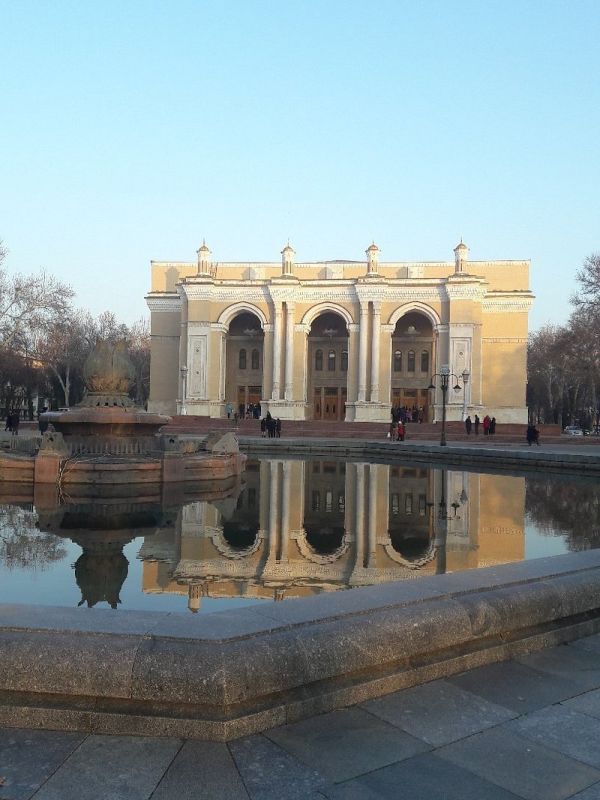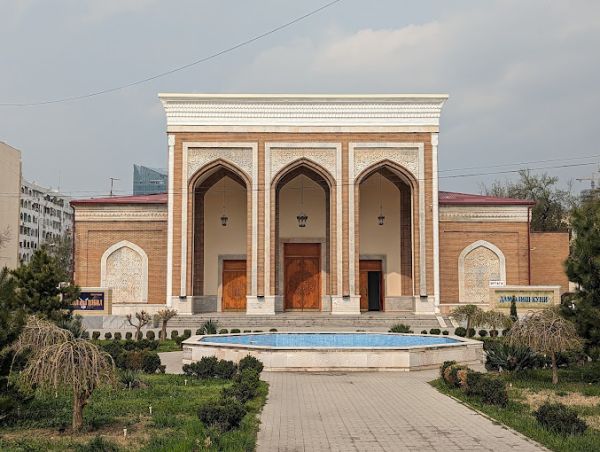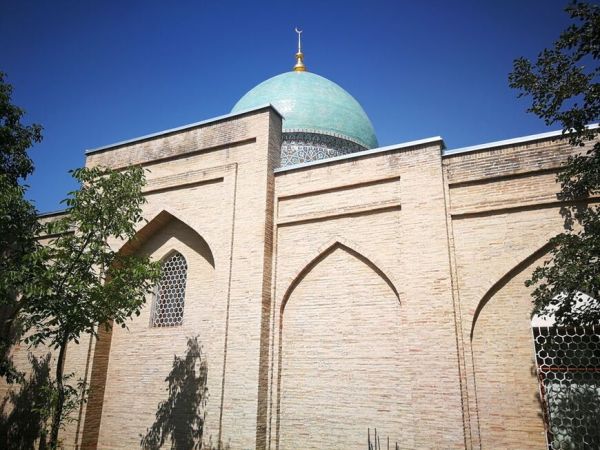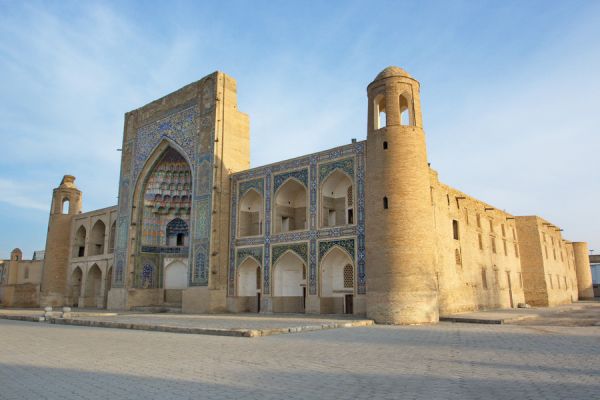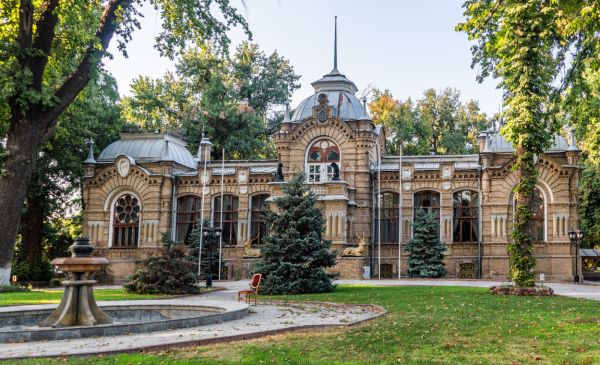National Academic Drama Theater of Uzbekistan
One of the oldest theaters in Uzbekistan, the National Academic Drama Theater— was founded in 1914. Today it is one of the leading national theaters in Tashkent. The theater building is located in the very center of the city — on the lively Alisher Navoi Avenue, and has a spacious hall with 540 seats.
The theater's productions are relevant and popular with modern audiences: "Semurg" based on the poem by Hamid Alimdazhn, "Alisher Navoi" by Uygun and Izzat Sultan, touring and acclaimed based on the play by Izzat Sultan — "Imon" ("Conscience"), "Mirzo Ulugbek" by Maksud Sheikhzade, "Autumn Letters" by Ulmas Umarbekov, "Momo ep" ("Mother Field") based on the work of Chingiz Aitmatov.
Currently, you can buy a theater ticket at the box office, in advance, or on the day of the performance. It is better to check information about the repertoire and the poster of the National Academic Drama Theater of Tashkent in advance by phone.
History
The theater traces its history back to 1913, when the first theater group in Central Asia, Turon, was created in Tashkent on the initiative of Abdullah Avloni, Munavvar-Kara and Tavallo. The official date of its foundation is considered to be February 27, 1914 — on this day, the first full-fledged performance was shown in the building of the Colosseum Theater in Tashkent.
The Turon Theater troupe ceased to exist in 1917 and its collapse was largely due to the difficult political situation of that time. During this period, the actors and directors of the troupe created more than 20 plays of various genres, about 30 actors were employed on a permanent basis in the team, performances were performed on two stages in Tashkent: winter and summer. The traditions laid down by the Turon troupe were an absolute new stage in the development of culture and art in Uzbekistan and Central Asia.
In March 1920, an exemplary regional drama troupe was created in Tashkent, bringing together smaller theater troupes from different cities of Uzbekistan that had appeared earlier.
In 1929, the State Uzbek Drama Theater was founded on the basis of the troupe, which was named after Hamza, the famous Uzbek poet and playwright (1889-1929).
The 1930s saw the rise of the national Uzbek theatre. New performances became real events and defined the cultural life of the country. The theater's repertoire included important and landmark plays for their time, which for many years became the basis of the drama theater's repertoire: N. V. Gogol's The Inspector (1935), Hamza's The Bai and the Farmhand (1939), which tells about Uzbekistan on the eve of the revolutionary events, Hamlet (the first production was in 1935) and Othello (1941), based on Shakespeare's works.
In 1933, the Khamza State Uzbek Drama Theater was awarded the academic title, and in 1937 it was awarded the Order of Lenin.
During the Second World War, national and patriotic works were staged on the stage of the theater.
In the 1950s and 1960s, the theater's repertoire expanded significantly, and the level of directing and acting reached the highest level. Significant supplies of that time include: the comedy "Silk Suzane" ("On Novaya Zemlya") Abdullah Kahkhar (1952), the productions "Tales of Turkey" and "Legend of Love" by the Turkish poet Nazim Hikmet (1953), the play "Mirzo Ulugbek" by Marsud Sheikhzade (1961), the play "My Poplar Tree in a Red Kerchief" based on the novel of the same name by Chingiz Aitmatov (1964), the play "Stolen Life" ("The Life of a Woman") by the Japanese playwright Morimoto Kaoru (1965), a production of Shakespeare's King Lear (1966).
On September 21, 2001, by Decree of the President of the Republic of Uzbekistan, the Uzbek State Theater named after Hamza was awarded the status of "National" and it was renamed the Uzbek National Academic Drama Theater.












